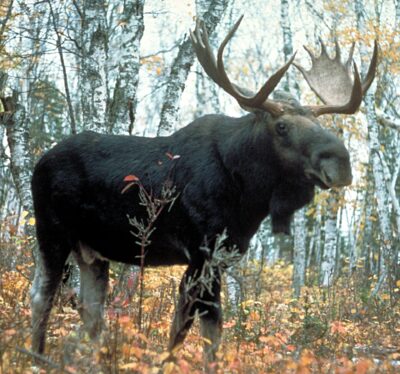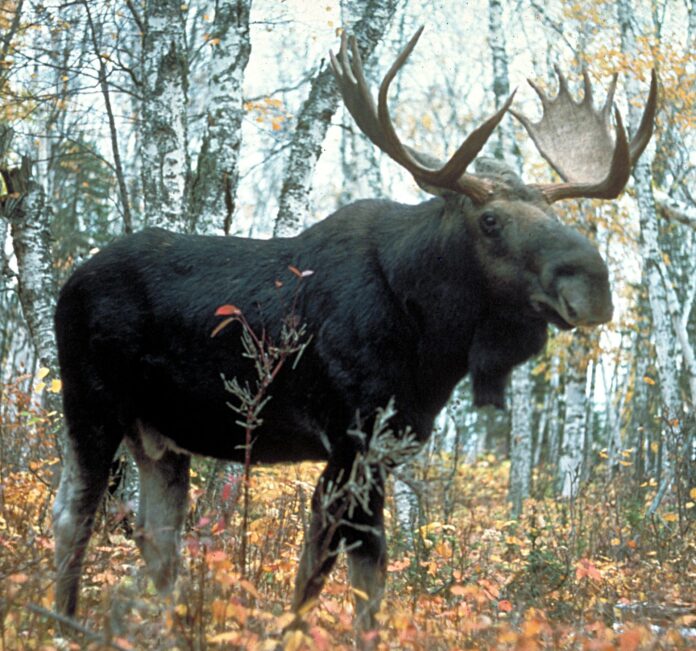BY HANNES THUM

In a canyon nearby, one recent evening, we saw a moose bedding down for the night in an open meadow, studded with old burned trees and a small spring frozen to a stop at this time of year. It was already cold, and the sun hadn’t even finished setting. We, with our electronic weather forecasts, knew how much colder it would be in a few hours. Perhaps, the moose knew, as well.
The next morning, the moose was still there. We had spent the night warmed by a wood fire, insulated clothing, and hot food. The moose had none of that, yet there he lay, as the sky lightened, his measured but regular breaths visible in the air.
For any local animal, what amounts to their version of shelter would look pretty meager to any of us humans on nights like these.
It’s a truth of our universe that hot things eventually cool to warm things, and warm things eventually cool to cold things. The Second Law of Thermodynamics makes it clear: there is only so much energy available in a system, and that energy can only dissipate in time.
What does this mean for our local species who are now preparing for winter? It means that they have to fight for warmth—the world will draw their heat away, slowly but surely, and with infinite patience. The only way to add heat is to find food, and the best one can hope for is to slow down the process of losing heat long enough to make it through until the next dawn after a freezing black night, the next warm day, or, ultimately, springtime.
Could I ever be as tough as the moose in the face of profound cold and long dark nights and thin fuels and the season that leaves very little choice except to simply endure? Could I dare to try, like the chickadee, to find enough food to keep my furnace fed through the winter that poses me with the double challenge of reducing the food available while increasing the draw of energy out of my tiny, vulnerable body?
Probably not. We humans aren’t much built for winter survival, really, if you take away our shelters and our synthetic clothing and our global shipping systems that provide us with as much high-calorie food as we can afford to buy. We long ago took an evolutionary choice to trade physical toughness to endure the hardness of the world for a different, but certainly valuable, trait: our brains.
And our brains have led to our synthetic clothing and our warm shelters and our crafty woodstoves and to the mauls that split the wood that we put into those stoves—so, the tradeoff works well enough. Let the moose hunker down in the bitter cold and do his slow breathing to persevere in his own way; let me do it my way. To each their own, I suppose.
But watching the moose, the chickadee, as winter approaches, makes me uneasy somehow. What do they know that we have forgotten?

